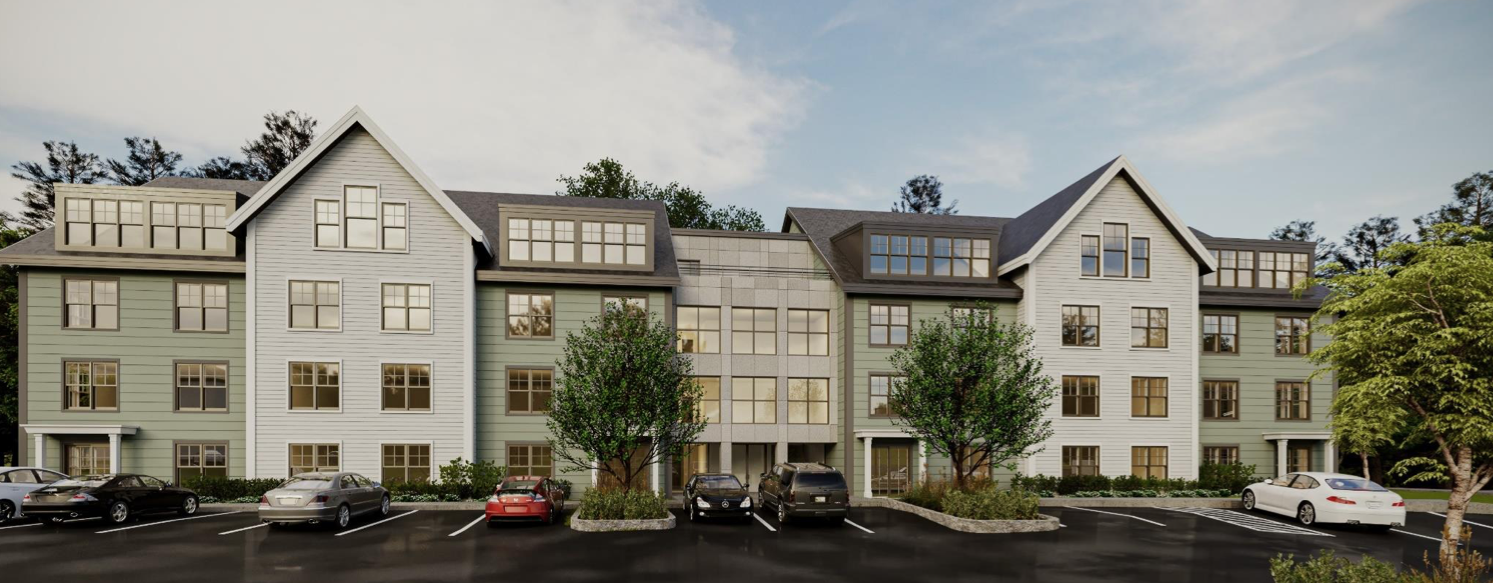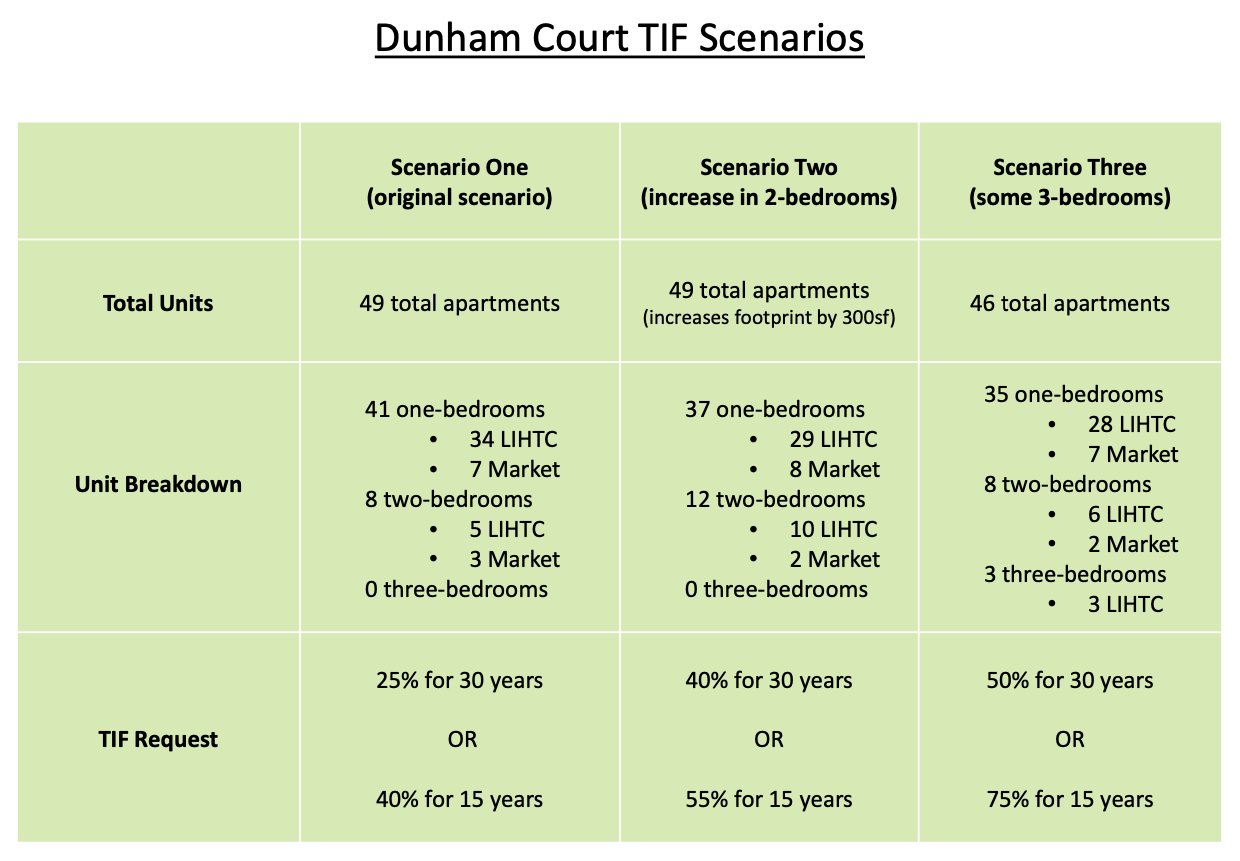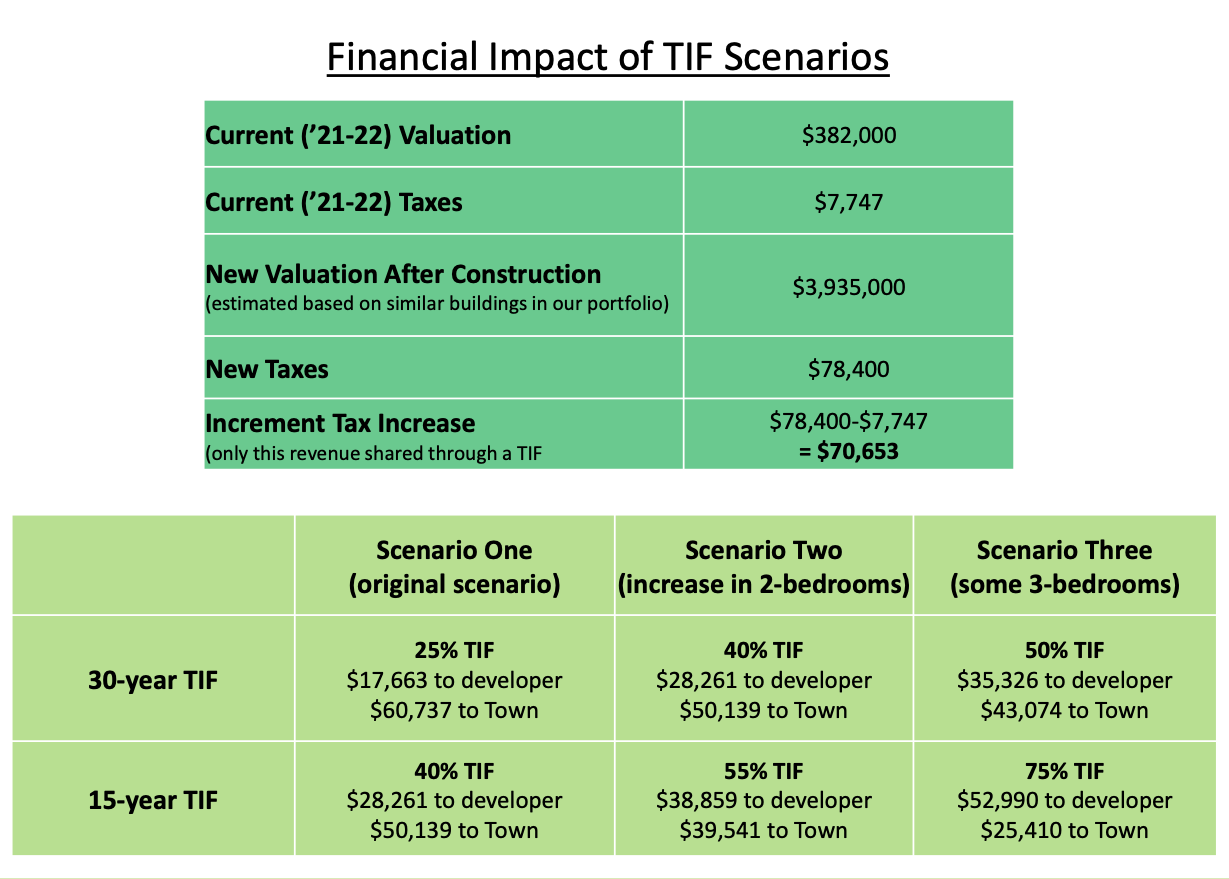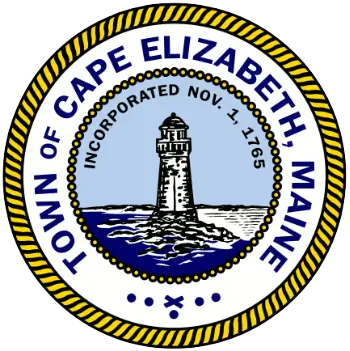Published on September 13, 2021

The Town Council will hold a Public Hearing at 7:00 p.m. on Monday, September 13, 2021 at the Cape Elizabeth Middle School Cafetorium on the proposed Town Center Affordable Housing Amendments. On July 12 the council set the amendments to a public hearing. A subsequent workshop was held on August 2 in which revisions were discussed and included in a draft dated August 3. The drafted Town Center Affordable Housing Amendments 8-3-20 were recognized and approved for public hearing by the council during their August 9 meeting.
The updated amendments were included in an August 3 Memo from Town Planner Maureen O’Meara to Town Manager Matt Sturgis in which the revisions are quoted below:
This section (p. 3, line 33) has reduced the minimum number of units in a project that would be eligible for the affordable housing dimensional requirements from 36 to 10 and added that a minimum of 70% of the dwelling units must be affordable to low-income households.
An additional restriction has been added that if a building footprint exceeds 5,000 square feet, only one building per lot is allowed. Because a 12,000 square foot building footprint is a version of two 5,000 square foot buildings plus a connection, conceptually, the opportunity to build multiple buildings has been ‘exchanged’ for one building with a footprint not to exceed 12,000 square feet (p. 4, line 1).
These revisions are included in the proposed Town Center Affordable Housing Amendments which include zoning ordinance amendments relating to: density, height, building footprint, and commercial space. The zoning ordinance changes were originally requested during a February 4 Town Council meeting by The Szanton Company, the developer of a proposed multifamily affordable housing project to be located at the Ocean House Commons in the town center [Article].
In addition to the four zoning ordinance amendments, The Szanton Company has requested a credit enhancement agreement with the Town through a Tax Increment Financing District (TIF) to fund the gap between the cost to develop the project and the financial sources available. A TIF allows a project to take on additional debt to fill the gap and requires that all proceeds of the TIF are used to pay debt. A TIF does not require zoning ordinance amendments but does require Town Council approval. In order to better understand this financing option, a September 3 Memo was provided to the Town Council from O’Meara and attorney Alyssa Tibbetts from Jensen Baird. In addition, a workshop was conducted on September 8 in which O’Meara, Tibbetts, and The Szanton Company were available to give more information and answer questions [September 8 Workshop].
As explained in the memo, a TIF is mutually beneficial to the developer and a community as it offers municipalities revenue to fund specific public project priorities within the community:
TIF funds are only available if a proposed development is built and then pays taxes. The difference in the taxes paid pre- and post-development is the “tax increment.” The Town has the discretion to determine the percentage of the tax increment revenue that it wants to capture or shelter within the TIF District and those taxes collected in excess of the pre-development level, i.e., the tax increment, can then be used by the Town (financing) for municipally approved purposes pursuant to the limitations of state law.
Importantly, as the total town valuation increases as a result of the increase in the individual property value of the completed development, a TIF allows a tax-shift benefit by allowing the town to “shelter” the increase valuation from state funding formulas used to determine state revenue sharing, state aid to education funding, and county tax assessment. In other words, state aid to the town is not decreased as a result of a higher valuation stemming from a TIF development. Currently, the Town of Cape Elizabeth has an established 20-year TIF District for the Town Center which will expire in 2035. The existing TIF may be extended by ten years, as the maximum life of any TIF is thirty years. The Town Council could amend the existing TIF District to include the proposed Dunham Court project or choose to create a second, separate TIF district which could have a total maximum term of thirty years.
During the workshop, Kristin Martin of The Szanton Company presented the Town Council with a presentation of three scenarios for TIF financing options; each impacting density by altering the number of possible units included in the project. Below is a chart taken from The Szanton Company presentation demonstrating the change of units in correspondence with various TIF options.

In Scenario One, which is the developer’s original scenario, 49 total apartments with 41 one-bedroom, 8 two-bedrooms, and 0 three-bedrooms involves requesting a 25 percent TIF for a 30-year period or a 40 percent TIF for a 15-year period. As the number of apartments goes down — in an effort to provide more two and three-bedroom apartments — the percentage of financing goes up. In Scenario Three, for example, where there are 46 total apartments with 35 one-bedroom, 8 two-bedrooms, and 3 three-bedroom units, a 50 percent TIF for 30 years or a 75 percent TIF for 15 years would be requested. Below is a chart taken from The Szanton Company presentation illustrating the financial impact of the three TIF scenarios.

Knowing that the council appeared to favor a shorter TIF, Chair Jamie Garvin asked that the community provide input on the three available apartment configurations during a future public hearing, likely at the October Town Council meeting.
Following the September 13 public hearing on the proposed Town Center Affordable Housing Amendments, the Town Council is not expected to take a vote on the amendments before the October 13 Town Council meeting. However, it is expected that the Town Council will vote during the September 13 meeting to set to Public Hearing the proposed TIF District for the Dunham Court project during the October 13 meeting.
In an effort to conduct the September 13 Town Council Meeting in person, while also providing ample social-distancing for the community to attend, the meeting will be held in the Cape Elizabeth Middle School Cafetorium [Article]. The meeting will not be live-streamed, but will be recorded and available for on-demand viewing the following day on Town’s website and on CETV.
